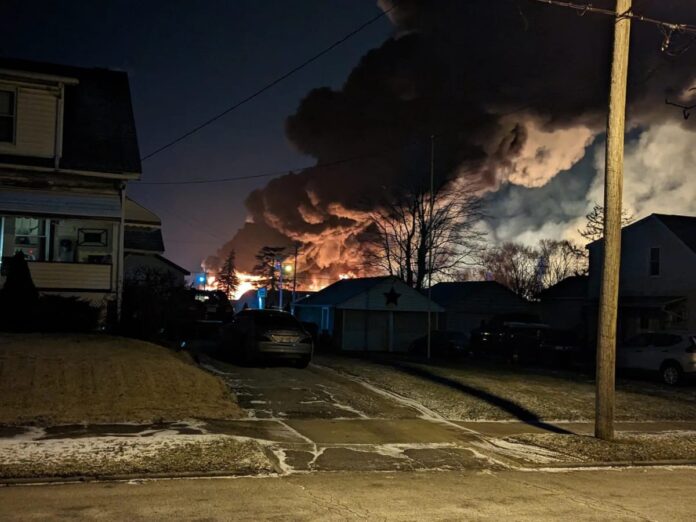What if I told you that the East Palestine toxic chemical disaster that occurred on February 3rd could be connected to the desperate quest for cobalt and lithium? This alarming theory has arisen as some experts argue that the official narrative doesn’t quite add up.
The disastrous event in East Palestine, Ohio, took place when a Norfolk Southern freight train derailed, causing 10 out of 38 derailed cars to release hazardous materials. Instead of following the usual procedures to handle such a situation, the decision was made to dump and burn the chemicals, releasing a potentially deadly cloud of chemicals and carcinogens.
As we dig deeper, we find links between the disaster and the cobalt gold rush. Cobalt is an essential component for electric vehicle batteries, and with President Biden’s ambitious plans to combat climate change and boost domestic mining, the demand for cobalt has surged. However, the dark side of the cobalt industry reveals exploitation, environmental damage, and geopolitical gamesmanship.
A research paper from Pennsylvania State University identified western Pennsylvania and the adjacent Ohio border area as potential sources of cobalt and lithium extraction. These regions, known for their old abandoned coal mines, could be sitting on a metaphorical goldmine. However, this has raised suspicions that properties in the area were rendered uninhabitable to devalue the land and allow for cheap acquisition for cobalt recovery.
Adding to the suspicion is the fact that Vanguard and BlackRock, two of the largest institutional investors in Blackstone, are also the largest shareholders in Intel Corp. Intel recently announced a $20 billion chip factory in Ohio – the largest private sector investment in the state’s history.
The pressure to secure cobalt and lithium supplies has created a complex web of connections, with potentially devastating consequences for the people of East Palestine. Whether or not this was a driving force behind the disaster, it raises questions about the ethical implications of the cobalt gold rush and the push for electric vehicles.
The European Union, for instance, is now “all but abandoning” its engine ban, as it becomes increasingly clear that the current battery technologies are unable to replace fossil fuels in driving distance or ease of refueling. Moreover, electric vehicles are only as green as the electricity used to charge them, and mining the necessary rare-earth minerals often involves environmentally destructive practices.
It’s time to reevaluate the push for electric vehicles and consider the true cost of the cobalt gold rush. As one Indigenous tribe leader wrote, “The green energy revolution cannot be built on a dirty mining industry, outdated regulations, and environmental injustice.”



